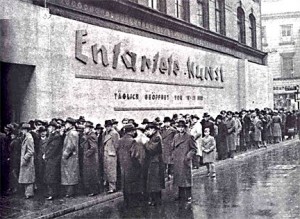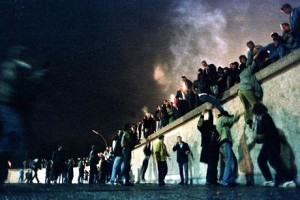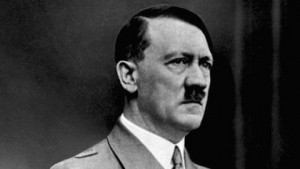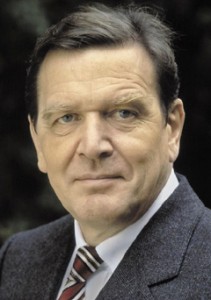In 1937 in Munich the Nazis held an art exhibition of what they called Entartete Kunst, or Degenerate Art. The purpose of the exhibition was to let the Germans know that some forms and pieces of art were not accepted by the "highest race", and this art is "degenerate", also called as Jewish or Bolshevistic. During the "Entartete Kunst" campaign … [Read more...]
Nazi and Bauhaus School
The end of Bauhaus The Nazi majority of Dessau suspended the seat of learning. Paul Schultze-Naumburg was the architect that they sent into the school to re-establish pure German art instead of the "cosmopolitan rubbish" the Bauhaus artists were doing. He described Bauhaus furniture as Kisten, or boxes. Bauhaus was even as private institution so … [Read more...]
Bauhaus School
The beginning and the goals of Bauhaus Bauhaus: [Ger., lit. "architecture house", from Bau = building (bauen=to build) + Haus = house.] Contemporary German architecture set its main trends in the first thirty years of the 20th century. The strongest influences came from Weimar and Dessau, where the Bauhaus school was founded in 1919. Under the … [Read more...]
Architecture in Germany
Architecture in Germany has been greatly influenced by the styles in architecture and art of European countries. These styles were born and developed during ancient period of Charlemagne’s Empire to the modern history after the World War II. The most ancient architectural designs appeared since 800 AD when German architecture was featured by the … [Read more...]
The Fall of the Wall and Reunification
In the middle of the 1980s the Cold War started to melt, especially due to the changes in the Soviet government. Mikhail Gorbachev, the first and the only President of the USSR, started a new political wave called Perestroika, and made a friendly step towards the West acknowledging the dependence of the Soviet Union on the high technologies and … [Read more...]
Germany Under Hitler and the Nazi
Nationalism is an infantile idea. It is a measles of mankind. --Albert Einstein The stars must have been in a special position above the Austrian town Braunau on April 20, 1889, when Adolf Hitler was born. Neither his father Alois Schickelgruber Hitler whom Adolf hated, nor his mother Klara Poelzl whom he, to the contrary, adored, could foresee … [Read more...]
Gerhard Schroeder: “I’m a climber”
On September 27, 1998, Gerhard Schroeder, a "bluff and combative" legislator from Lower Saxony, was chosen a new chancellor of Germany. Mass media consider him to be a "breath of fresh air" after 16 years of Helmut Kohl's governing. This was a big news for the whole political world. The event hit the headlines of the leading newspapers and … [Read more...]
Rudolf Diesel, His Invention and Mysterious Death
Circumstances of Rudolf Diesel’s death are considered to be a suspicious enigma for us even now. Dr. Rudolf Diesel boarded “SS Dresden”, a cross-channel ferry, at Antwerp in September 1913. He was going to see the newest diesel engine factory of London. The famous engineer was invited as a guest of honor to the opening of that factory. He … [Read more...]







